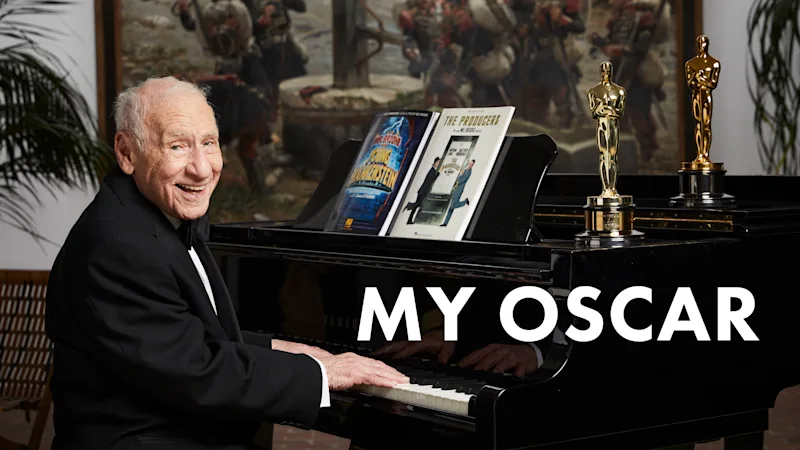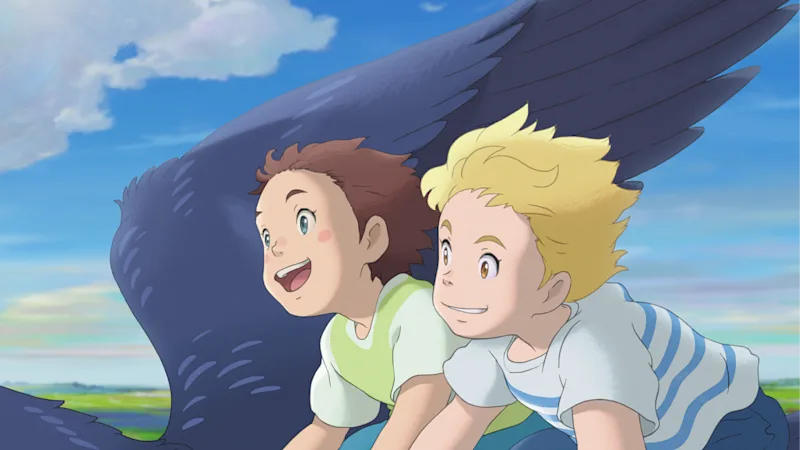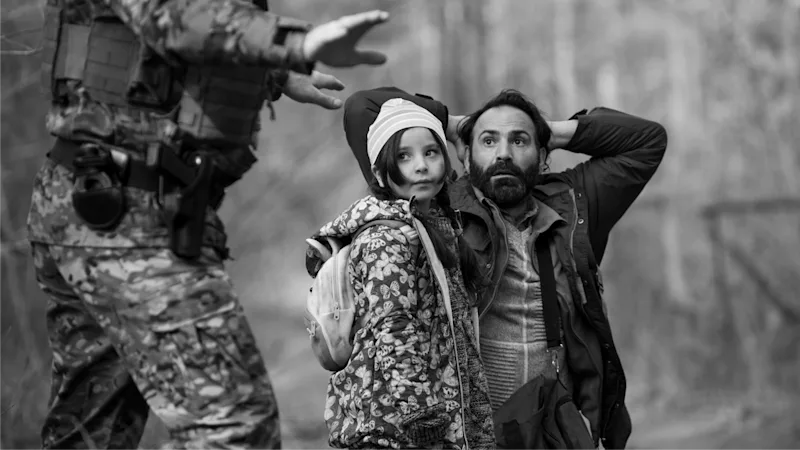"This movie was such a long journey," Oscar-winning screenwriter Josh Singer reflects on his time with Maestro, which is perhaps an understatement when you consider that Singer was hired to script the Leonardo Bernstein biopic before 2015's Spotlight was even made. In fact, Maestro came into Singer's life at a time when he thought Spotlight would never get made.
"It's funny, my first meeting with [producers] Fred Berner and Amy Durning was literally around the time that Spotlight was falling apart," Singer says. "The Fifth Estate, which was my first produced movie, premiered at Toronto and was not received very well, and at the same time, there were two actors cast in the roles of Robby Robinson and Mike Rezendes, which Michael Keaton and Mark Ruffalo eventually played, who fell out. So, all I had to cling to was this movie about Leonard Bernstein."
That was 10 years ago. In that time, Martin Scorsese, who was attached to the project, stepped away to focus on The Irishman. Singer slipped the script to Steven Spielberg after writing a draft of The Post, and Spielberg officially came onboard — only to also step away, to focus on West Side Story. (Both Scorsese and Spielberg remained on as producers.) The project switched from Paramount Pictures to Netflix. And then there was a global pandemic.
Amid it all, Spotlight did eventually get made, going to to win both Best Picture and Best Original Screenplay at the 88th Oscars. And at long last, Maestro also got made. At the 96th Oscars, Maestro is nominated for seven Oscars, including Best Picture, Best Actor in a Leading Role, Best Actress in a Leading Role, and Best Original Screenplay.
"I've been working on it for a very, very long time. It has lived and died many lives," Singer says. "Thank God Bradley came along."
Bradley Cooper, fresh off of making his directorial debut with A Star Is Born, joined the project in 2018 as its director, star and co-writer. He also wanted to do a page one rewrite. Collaborating with Singer, they scripted a new version of Maestro that made the great American composer's illustrious career the backdrop of the movie and instead focused on the complicated marriage between Bernstein (Cooper) and Felicia Montealegre (Carey Mulligan).
"It's had its ups and downs at every step along the way, but I'm incredibly proud of the movie," Singer says. "And it's not every day you get nominated!"

A.frame: Where did you and Bradley start with a page one rewrite?
It started with a lot of jawing, and it's such a joy just to sit for an hour and a half and talk about ideas and talk about story. And there's so much on Lenny. There's a book, The Private World of Leonard Bernstein, which is fantastic. In 1967, John Gruen, who's this gadfly, went to the coast of Italy with Lenny and his family and took lots of pictures and spent the summer interviewing them. And we have all that tape. So, one of the early touchstones for us was just listening to those tapes and hearing what it was to be part of that family. And it was a great picture of the marriage, and it's a marriage that was working but the cracks were starting to show. This text for us was one of the first things that we really started jawing about, and that's where Bradley was like, 'I think this is the whole movie.'
It's about family, it's about marriage, it's about this man's need for both marriage and other things and the struggle that that entails, which is quite universal. I think we all make certain contracts and agreements when we get into marriage, and then sometimes it's hard to abide by them! I think that's what Lenny and Felicia found. Yet, they really did deeply love each other and, frankly, couldn't live without each other.
What did the actual business of you and Bradley writing together? Was it sending each other scenes, or sitting next to each other and fleshing them out together?
From there, it was starting to say, 'Well, what about this scene? What about that scene?' Not dissimilar to any good collaboration, you're spitballing scenes, and talking them out and, 'Oh, wouldn't it be great if he said this, or she said that?' It was just back and forth, and then you divvy it up. 'You take this scene, let me take that scene.' And then you send them to each other, and at first, you're very careful. If you're going to make notes or do a rewrite, you're going to do it with cross-outs and in different colors so that nobody's offended. And then as you evolve, you start to trust each other a little more, and it's like, 'Yeah, I just took a pass at this. What do you think?'
That was the way it went. And what surprised me, frankly, was my perception of Bradley versus reality. I thought, 'He is a movie star! He's not going to actually type.' Boy, he typed a lot! He wrote as much, if not more than me. Like, the fight scene? People were always like, 'That fight scene is amazing. Great work.' And I'm like, 'That was Bradley!' He literally took the first cut at that scene, and if I did anything, it was like, 'Ah, maybe trim here and trim there.' That was it. He'd been listening to the tape so much, so he knew the voices so well. I was surprised and thrilled, frankly, to see how much he was in the muck with me, which is every bit as much as anyone I've ever collaborated with. We had a wonderful collaboration and a true collaboration. And moreover, he would often be ahead of me on the research, and then I would have to catch up, because he's that obsessive a personality, which can be a little exhausting at times but well worth it in the end. And then the thing that I'd never done before, which I really loved, is we would sit and we would read the script to each other. We'd just read it aloud. He'd read Lenny, I'd read Felicia, and I made a very good Felicia, I think.
I would love to hear the accent.
[Laughs] Exactly. No, we didn't do voices. He wasn't acting the part. And I certainly can't do a Transatlantic accent with the Chilean lilts, the way Carey does so magnificently. It was just about reading it aloud and feeling the flow and feeling the scenes. It was the greatest way to get a little objectivity. The other thing is he's very iterative. Try it all. Do a hundred drafts and it's about the best ideas win in the end. I haven't counted the drafts, but it's got to be a hundred or more.

When you're dealing with a real subject but don't want to make a biopic in the traditional sense, what was your approach to including the biographical details and everything you needed to present to an audience that maybe doesn't have a huge understanding of Bernstein?
In some ways, I thought that was the thing that was unique about Bradley's approach. The film has such passionate fans and then a couple of equally passionate folks who have trouble with it, but Bradley was always focused on the marriage. I think he was really fascinated by this queer man — and I think we would call him queer now, although they didn't have the terminology for that then — who needs [his] family. How does that manifest? And whether you're queer or straight or bi or whatever you are, I think entering into any type of long-term relationship, you're going to struggle with those things, because we're all human. That's what Bradley found most powerful.
Traditionally, this biopic would be the 'Great Man of History' film — his life, his choices, his struggles. Am I going to be a conductor or a composer? And what are the big moments of that? We'd have to hit '57, where he's had success with West Side Story and Candide and he gives it all up to go join the Philharmonic. And then we'd have to have '67, where he's been at the Philharmonic for 10 years and has been inordinately successful and has a worldwide name, and yet he feels like he hasn't composed enough. And you have to have the first moment of Manfred, where he bursts out and has this tremendous success. And then you have to have On the Town and Fancy Free, and you have to have the moment when he goes away from musical theater and then comes back to it. Felicia is the B story. So, what we did is forget the moments. What are the moments of their courtship? Who is he before they meet? Who is she when they meet? What's the courtship? They decide to make this pact and then they're in it, and then it starts to fray. And what happens after? And oh, by the way, let's fit in a couple of those big moments.
It's inverting things that you would do in a traditional biopic. That was what I thought was the brilliance of Bradley's approach, because not only would his life fall into a 'Great Man of History' — which could be a bit dull, just because we've seen it before — but also there's so much of it to cover. I gave you all those things, and I didn't even talk about him conducting at the Berlin Wall or the huge AIDS benefit he did where they all sang "Somewhere (There's a Place for Us)." His life is so vast! So, iIt's having some lens through which to tell the story of the human as opposed to trying to tell the whole life.
Something I thought was such an interesting choice when I first watched the movie that does feel like an inversion of the 'Great Man of History' is that conventional wisdom says you would show the big, show-stopping conducting scene at the beginning of the movie — when he has his big, show-stopping debut that establishes him as a genius — but you hold it to the end, when it's more about Felicia's reaction to watching him compose.
Yes, and also, Bradley had this idea of hiding the shark. Let's see this guy, and just at the moment where you're most struggling with him, and just as she's most struggling with him, you see the beauty of what he does. Look, all of us out here become friends with some pretty famous people, and as I said with Bradley, there's what's perceived on the face and then there's who they are when you're just alone with them. And I've been quite fortunate, I've gotten close with some quite well-known individuals who are wonderful mensches, and that's just who they are. And to some degree, there's something really wonderful in getting to know Lenny without seeing the God on the podium. Yeah, you know who he is and you hear his music, but you're dealing with this very human man just trying to answer questions for himself. And then, oh, yeah, he's a God on the podium! But that's not what this movie's about. This movie's about the marriage, and can two people be married together and love each other despite everything else that they have needs for?

Is there a scene that you feel most proud of now, either because of how hard it was to crack or because you just like how the writing sings on-screen?
There's so much of this that was so beautifully realized. I would say there are two scenes which I really love. Obviously, everybody talks about the fight scene, and I love that scene, too! Don't get me wrong. But the two scenes that really that really take my breath away are the scene in the Palm Court with Felicia and Shirley and Jamie. I love that scene because the work is so beautiful, and what's interesting is that feels like perfect collaboration. I took the first shot at that scene and did the soliloquy about the guy she thought had a crush on her, but had a crush on Mendy Wager. Originally, it was just about that and then, 'he called me.' And she's thinking about going back. But Bradley pushed and said, 'It's not done. You need to have her talk about her complicity here.' Basically, 'look who's the one who's been foolish.' And there's something really powerful in the emotional wisdom Bradley had of, 'No, this has got to turn her towards him in a bigger way than just I miss him.' It's got to be like, 'Yes, he's culpable, but so am I.' We made this deal together and I pretended that these things didn't matter, but they do. And I miss him. And then she finishes with, 'Any questions?', which was also Bradley's idea, which is wonderful because it's the end of Candide, and that ends the movie, which is such a perfect last two words.
And then the other scene is another one that was a real collaboration, which was the scene of Lenny lying to his daughter Jamie. I love that scene. Again, Bradley wrote most of Lenny's soliloquy there, which I think is beautiful. But what is really extraordinary, I think, is what's not said, which is the moment at the end where she says, 'I'm relieved.' You see the look in his eyes, and there's a lot of incredible work to Bradley's performance, and we've talked about a lot of the bigger things — like the time spent preparing to conduct — but to me, it's that tiny, little moment where you see him die a little when she says, 'I'm relieved.' He looks down and he says, 'Okay, let's go inside,' and it's incredibly heartbreaking. There aren't too many movie stars of Bradley's ilk who could pull that off. I just think it's such a beautiful moment, and so as good as it was on the page, you get the magic from what happens on set.
You have lived so much life with this movie. What are you going to do when your journey on Maestro is finally done?
I'll still have the music. I joke that this journey has been a series of playlists, and it really has. When I first went into pitch Marty my initial take on the movie, I made a little playlist, which I still have. I went in and I told him, 'I'm going to play the things,' and he's like, 'No, no, no, no, that'll confuse me. I know them all anyway.' And, of course, he did know them all and was singing a bunch of them as we were going along. It was a really electric, exciting moment for me. And then there were a series of playlists that we were making as we were writing, and those continued to evolve. And then there's the final playlist, which is an album, which actually was No. 1 on the classical charts for three or four weeks. It's a little bit of a greatest hits album, but it's all my favorites. So, to me, I'll still have the music.
A.frame, the digital magazine of the Academy, is excited to celebrate and honor the nominees of the 96th Oscars across several branches by spotlighting their nominated films, craftsmanship, and personal stories. For more on this year's nominees, take a look at our Oscars hub.
Editor's Note: For parity, A.frame reached out to every nominee in the Best Original Screenplay category for an interview.
RELATED CONTENT:
'Maestro' Screenwriter Josh Singer's Top 5
Carey Mulligan Says She Didn't 'Think of Herself as an Actress' Until 'Maestro' (Exclusive)







